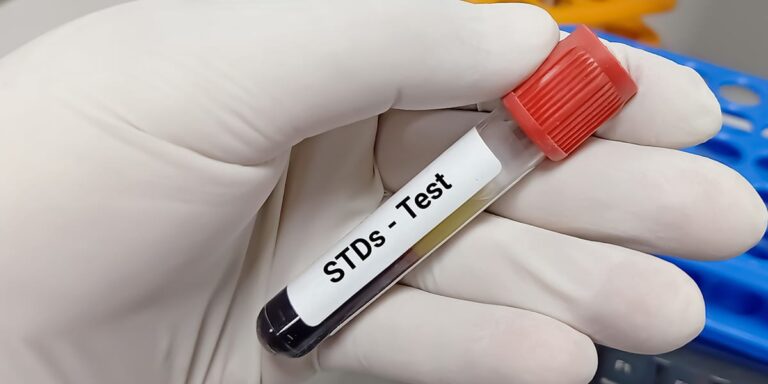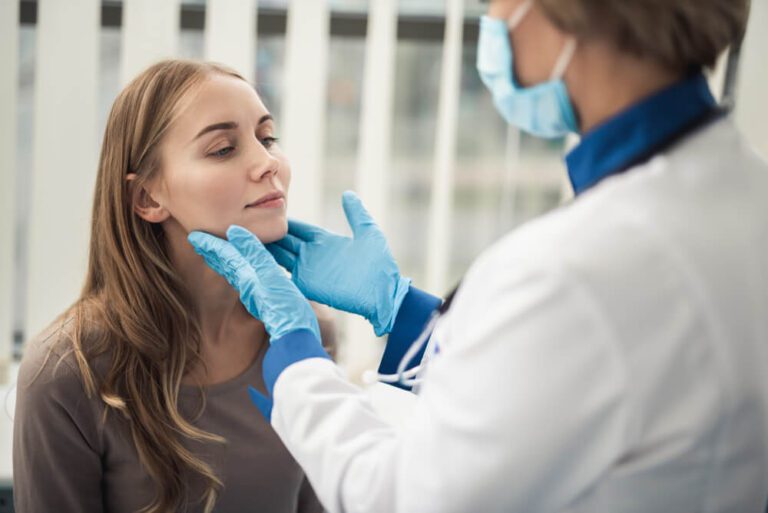How Long Can You Have Herpes Without Knowing
Herpes is one of the most common viral infections worldwide, affecting millions of people without them even knowing it. This silent and often misunderstood virus has the ability to stay dormant in the body for years, leaving people unaware of their infection. How long can you have herpes without knowing is a question many ask once they realize the complexities of this virus. Herpes is caused by the Herpes Simplex Virus (HSV), which exists in two types: HSV-1 and HSV-2. While many individuals with herpes experience symptoms like cold sores or genital sores, others may have no symptoms at all, making the infection almost undetectable. In this article, we’ll explore the different aspects of herpes, including how long it can remain hidden in your body, its symptoms when to seek herpes treatment, and the management of herpes.
What is Herpes?
Herpes is a viral infection that belongs to the herpesvirus family, which includes the varicella-zoster virus (responsible for chickenpox and shingles). The two most common types of herpes simplex viruses are HSV-1 and HSV-2. Understanding herpes involves exploring both the virus itself and the ways in which it manifests in individuals.
The Herpes Simplex Virus (HSV) Explained
Herpes simplex virus (HSV) is a contagious virus that can cause painful sores on various parts of the body. HSV-1 is typically associated with oral herpes, manifesting as cold sores around the mouth, though it can also cause genital herpes. HSV-2, on the other hand, is more commonly linked to genital herpes but can also cause oral infections through oral-genital contact. Both types of herpes are spread through close contact with an infected individual, even when symptoms are not present, contributing to the virus’s stealthy transmission.
The virus enters the body through broken skin or mucous membranes and travels to the nerve cells, where it remains dormant. The virus can reactivate at any time, usually in response to triggers like stress, a weakened immune system, or hormonal changes. This dormant phase is why many people may not realize they have herpes for years, as they don’t show visible symptoms.
HSV-1 vs HSV-2: Key Differences and Misconceptions
There are significant differences between HSV-1 and HSV-2, though both cause similar symptoms. HSV-1 is most commonly known for causing cold sores around the mouth, but it can also cause genital herpes through oral-genital contact. HSV-2 is typically responsible for genital herpes, but it can occasionally cause oral infections, although this is less common.
One of the most persistent misconceptions about herpes is that HSV-1 can’t cause genital herpes and vice versa. This is false, as both HSV-1 and HSV-2 can affect any area of the body. Understanding this is crucial, especially when it comes to preventing the transmission of the virus. Since both types can be spread even when there are no symptoms of herpes, it’s important to take precautions during sexual activity to reduce the risk of transmission.
Herpes Incubation Period
The herpes incubation period—the time between exposure to the virus and the first appearance of symptoms—varies greatly from person to person. In many cases, the herpes virus can remain dormant for long periods without causing any symptoms, which is why the virus is often not detected until an outbreak occurs.
How Long Can Herpes Stay Dormant?
The herpes virus has an incubation period of approximately 2 to 12 days, with symptoms often appearing within a few days of infection. However, in some cases, the virus may remain dormant in the nerve cells for years without triggering any symptoms. This latency phase can be long, which is why many people go years without knowing they have the virus.
The herpes virus resides in the ganglia (clusters of nerve cells) after it first infects the body. It is here that the virus can lie dormant for extended periods, only reactivating under certain conditions. Stress, a weakened immune system, or even physical trauma can trigger reactivation, causing the virus to travel along the nerve pathways to the skin’s surface, leading to an outbreak.
Understanding the Variables that Affect Incubation
The length of the dormancy phase can vary, and several factors can influence how long herpes remains undetected. The type of herpes virus you have, the health of your immune system, and environmental triggers all play significant roles in how the virus behaves. For example, someone with a compromised immune system may experience more frequent outbreaks, while a person with a strong immune system might experience longer periods of dormancy.
Other factors, such as the presence of other sexually transmitted infections (STIs), physical stress, or even the use of immunosuppressive medications, can also increase the likelihood of an outbreak. Herpes infections may manifest in different ways depending on the individual, which is why two people with the same strain of herpes may experience different patterns of outbreaks.
Herpes Symptoms: Recognizing the Signs
Herpes can show a wide range of symptoms, some of which are difficult to recognize, especially if they are mild or intermittent. Many people may experience flu-like symptoms or no symptoms at all, which can make herpes hard to diagnose.
The Herpes Rash: Early Indicators to Look For
The most common and recognizable symptom of herpes is the rash or blister-like sores that appear on the skin. These sores typically appear in clusters and are often painful. Initially, they may start as small red bumps that develop into fluid-filled blisters. The sores may rupture, crust over, and eventually heal within a few weeks.
These sores typically appear around the mouth (oral herpes), genitals (genital herpes), or anus (anal herpes). In some cases, the first outbreak may be more severe, with sores appearing on multiple parts of the body. The presence of a herpes rash is usually the most obvious sign that someone has contracted the virus.
Flu-Like Symptoms: When Herpes Feels Like a Cold
Before the rash appears, some people may experience flu-like symptoms such as fever, headache, muscle aches, and swollen lymph nodes. These early warning signs can be easily confused with the common cold or other viral infections, making it difficult to detect herpes without a clear rash or sores.
Additionally, herpes can sometimes cause itching or a tingling sensation in the affected area before visible symptoms emerge. This is called “prodrome” and is a sign that an outbreak may be imminent. People who experience recurrent herpes outbreaks often become familiar with these early symptoms, allowing them to take antiviral medication to prevent or shorten the outbreak.
How Long Can You Have Herpes Without Knowing?
This question is at the heart of why herpes is such a challenge to diagnose. Many people with the herpes virus experience no symptoms, and even when symptoms do appear, they may be mild or mistaken for another condition.
Understanding the Silent Period of Herpes
Herpes can remain asymptomatic for a long time. During the asymptomatic phase, individuals can unknowingly spread the virus to others. This is why herpes is often referred to as a “silent” infection. The virus can stay dormant in the body, sometimes for years, without any visible signs or symptoms.
In fact, it’s estimated that up to 90% of people with HSV-2 and 50% of people with HSV-1 do not know they are infected because they never experience any obvious symptoms. This silent period is particularly concerning because it makes it difficult to detect the virus through routine testing, especially since most individuals do not test for herpes unless they suspect something is wrong.
Can Dormant Herpes Be Detected Without Symptoms?
While a dormant herpes infection may not cause visible symptoms, it can still be detected through blood tests that look for antibodies to the herpes virus. These tests are useful for determining whether someone has been infected with herpes in the past, but they do not indicate whether the virus is currently active or dormant.
PCR (polymerase chain reaction) testing and swabs from active outbreaks are more effective at detecting active herpes infections. However, without visible symptoms, detecting dormant herpes is challenging. Individuals who are at risk or have concerns about potential exposure should consider discussing herpes testing with their healthcare provider.
Herpes Treatment: Managing Symptoms
While there is no cure for herpes, there are several effective treatments available to help manage symptoms and reduce the frequency of outbreaks.
Medications to Manage Outbreaks
The most common herpes treatment is antiviral medications, which help to reduce the severity and duration of outbreaks. These medications include acyclovir, valacyclovir, and famciclovir. They work by inhibiting the replication of the herpes virus, preventing the virus from spreading and helping the body to recover more quickly.
For individuals who experience frequent outbreaks, daily suppressive therapy with antiviral medications may be recommended. This approach reduces the risk of transmission and helps keep outbreaks under control.
How to Prevent Herpes Transmission
Preventing herpes transmission requires a combination of strategies. Using condoms during sexual activity, avoiding sexual contact during outbreaks, and discussing herpes status with partners are essential steps in reducing the risk of spreading the virus. Additionally, regular use of antiviral medications, even when no symptoms are present, can significantly decrease the likelihood of transmission.
Also Read: CAN YOU CATCH CHLAMYDIA THROUGH KISSING?
Is There a Cure for Herpes?
Unfortunately, there is no cure for herpes, but ongoing research continues to provide hope for new treatments. Current antiviral medications are highly effective at controlling symptoms and preventing the spread of the virus.
Current Treatments and Ongoing Research
Although no cure exists, there are promising developments in herpes research. Researchers are exploring vaccine options, therapeutic approaches, and immune-modulating drugs that may one day offer a more permanent solution to the virus. Additionally, gene-editing technologies like CRISPR are being explored as potential treatments to eliminate the virus from the body.
Conclusion
Herpes is a complex virus that can remain dormant for years without showing any symptoms. Many people unknowingly carry the virus and may not even realize they have it until an outbreak occurs. By understanding how long herpes can stay dormant, its symptoms, and the available treatments, individuals can make informed decisions about their health. Although there is no cure for herpes at this time, antiviral medications can help manage symptoms and reduce the risk of transmission. If you suspect you have herpes or want more information, it’s important to speak with a healthcare provider for proper diagnosis and herpes treatment options.
Related Tag: STD Testing in Jacksonville






